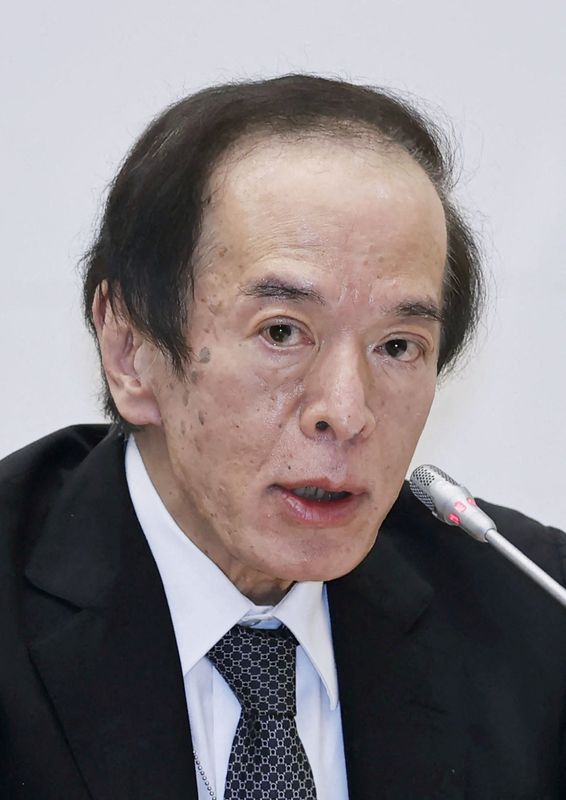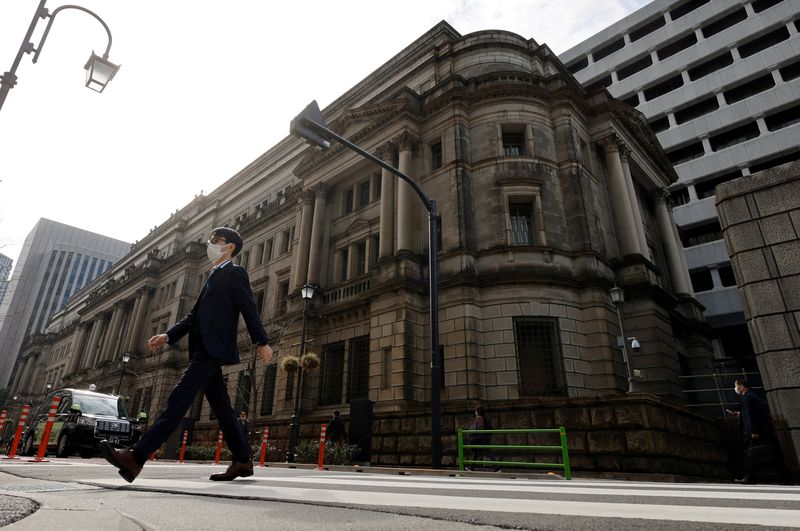By Tetsushi Kajimoto and Leika Kihara
TOKYO (Reuters) -Japan's government named academic Kazuo Ueda as its pick to become next central bank governor, a surprise choice that could heighten the chance of an end to its unpopular yield control policy.
Ueda, a 71-year-old former Bank of Japan (BOJ) policy board member, will succeed incumbent Haruhiko Kuroda, whose second, five-year term ends on April 8, according to documents presented to parliament on Tuesday.
The leadership transition marks a historical end to Kuroda's decade-long monetary experiment that sought to shock the public out of a deflationary mindset, and could eventually align Japan with other major economies toward higher interest rates.
With inflation exceeding the BOJ's 2% target, Ueda faces the delicate task of normalising its prolonged ultra-easy policy that has drawn increasing public criticism for distorting market function and crushing bank margins.
Analysts expect Ueda, who had warned of the dangers of premature interest rate hikes in the past, to hold off on tightening monetary policy.
But he may be more keen than his predecessor to roll back yield curve control (YCC) - a complex framework combining negative short-term rates with a 0.5% bond yield cap - given his past comments flagging its potential flaws, analysts say.
"Ueda is likely to focus on theory and empirical analysis in guiding monetary policy," said Naomi Muguruma, senior market economist at Mitsubishi UFJ (NYSE:MUFG) Morgan Stanley (NYSE:MS) Securities.
"I don't think he will idly continue a policy that didn't work and showing increasing side-effects," she said.
The appointment of Ueda, which was first reported by the Nikkei newspaper and confirmed by Reuters on Friday, came as a surprise to many investors who expected the job to go to a career central banker like deputy governor Masayoshi Amamiya.
Ueda at the helm will make it easier for the BOJ to depart from current stimulus than a choice like Amamiya, who played a key role in crafting Kuroda's policies, analysts say.
"There's a possibility the BOJ will end its policy of capping the 10-year bond yield this spring or summer," said Izuru Kato, chief economist at Totan Research.
"Once it removes the 10-year yield target, the BOJ could wait to see how inflation and overseas economies develop in deciding when to exit negative rates," he said.
The yen rose 0.46% to 131.82 per dollar on Tuesday and the 10-year Japanese government bond (JGB) yield held at the top of the BOJ's 0.5% cap. While investors see Ueda as less dovish than Amamiya, most of the market reaction to his nomination took place when reports broke on Friday.
FRAGILE RECOVERY
International markets have been closely watching Prime Minister Fumio Kishida's choice of next BOJ governor for clues on how soon the bank could phase out YCC.
The government also nominated Ryozo Himino, former head of Japan's banking watchdog, and BOJ executive Shinichi Uchida as deputy governors, the documents showed.
They will replace incumbents Amamiya and Masazumi Wakatabe, whose five-year terms end on March 19.
The nominations need the approval of both chambers of the Diet, which is effectively a done deal since the ruling coalition holds solid majorities in both chambers.
The nominees will testify at confirmation hearings later this month, though the dates have not been formally decided.
Upon parliament's approval, Ueda will chair his first BOJ policy meeting on April 27-28.
Chief Cabinet Secretary Hirokazu Matsuno said on Tuesday Ueda was an "internationally prominent economist" and voiced hope the BOJ would closely work with the government to spur growth.
Speaking to reporters near his residence in Tokyo, Ueda said he will "do his best" if the appointment is approved by Diet.
A soft-spoken academic with a PhD from the Massachusetts Institute of Technology, Ueda is seen as a pragmatist who can adjust his views on monetary policy flexibly.
He takes the BOJ helm with inflation running at twice the central bank's target, which has given investors an excuse to attack the 0.5% cap set on the 10-year bond yield.
In an opinion piece in the Nikkei last July, Ueda warned against prematurely raising rates in response to inflation driven mostly by cost-push factors.
But he also wrote the BOJ must eventually consider how to exit its ultra-loose policy, pointing to the difficulty of maintaining the yield cap when inflation perks up.

Some analysts say Japan's fragile recovery will complicate the path toward an exit, after data showed the rebound in October-December growth was weaker than expected.
"It might be hard for the BOJ to normalise ultra-easy policy this year as overseas economies are slowing," said Takeshi Minami, chief economist at Norinchukin Research Institute. "The BOJ may have to wait until fiscal 2024 at the earliest."
